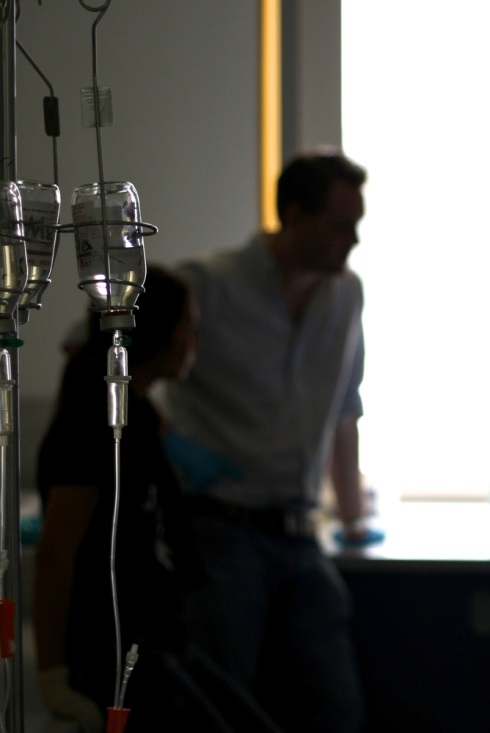Cancer Treatment & Eating Problems
What to Do When Cancer Treatment Causes Eating Problems
 Cancer treatment in general can make it hard to maintain adequate nutrition, but patients undergoing treatment for head and neck cancer in particular face a unique set of challenges. Targeted treatments seek to minimize side effects that can cause dry mouth, soreness of the mouth and throat, difficulty swallowing and mouth ulcers. But in spite of the best efforts of your treatment team, you may still experience some of these side effects.
Cancer treatment in general can make it hard to maintain adequate nutrition, but patients undergoing treatment for head and neck cancer in particular face a unique set of challenges. Targeted treatments seek to minimize side effects that can cause dry mouth, soreness of the mouth and throat, difficulty swallowing and mouth ulcers. But in spite of the best efforts of your treatment team, you may still experience some of these side effects.
When head and neck cancer treatment makes it hard to eat, you may need to change your eating habits accordingly. Soft foods and thick liquids are often easier to swallow when you’re suffering from soreness of the mouth and throat, and can even be soothing to irritated areas. At the same time, there are some foods you should avoid during head and neck cancer treatment, because they can irritate sensitive tissues. In order for head and neck cancer treatment to be a success, it’s important that you maintain proper nutrition and eat enough calories to keep up your strength.
Remember the Basics of Cancer Treatment Nutrition
When you’re having trouble chewing or swallowing your food due to the side effects of head and neck cancer treatment, the principles of good nutrition remain the same as if you were having any other kind of cancer treatment. You may need to switch to eating six to eight small meals each day instead of three big ones. You should also focus on eating calorie-dense, nutritious foods. You may not be able to eat as much as you could before you started treatment, so you need to make every mouthful count in terms of calories. Keep your diet balanced, too, by eating a variety of foods.
Make Foods Easier to Swallow
Thick liquids, like milkshakes and yogurt, can be easier to swallow than thin liquids when swallowing is difficult. You can add thickening agents, like gelatin or cornstarch, to thin soups, or use a slurry (mix of water and flour) to soften cakes and breads enough to swallow them comfortably. Use a blender or food processor to puree your meals.
Avoid Acidic, Spicy, Salty or Tart Foods
If you have soreness or ulcers in your mouth or throat, certain foods can aggravate that condition. These foods can include:
- Tart fruits and citrus fruits
- Pickled foods
- Foods, dressings and sauces containing vinegar
- Tomato-based sauces and foods
- Foods with a rough texture, like granola, toast or raw vegetables and fruits
- Spicy or peppery foods, like cloves, horseradish, chili pepper, nutmeg and hot sauces
 Use mild spices like rosemary, oregano, mint, basil and thyme to add flavor to your meals. Add calories to your diet using lean meats, peanut butter, dairy products, nuts and seeds, or liquid food supplements. If you have sores or ulcers in your mouth or throat, soft, bland foods are the way to go. Drink liquids through a straw to keep them from irritating sore areas. If you’re not sure what to eat, there are plenty of recipes designed for people going through head and neck cancer treatment available online.
Use mild spices like rosemary, oregano, mint, basil and thyme to add flavor to your meals. Add calories to your diet using lean meats, peanut butter, dairy products, nuts and seeds, or liquid food supplements. If you have sores or ulcers in your mouth or throat, soft, bland foods are the way to go. Drink liquids through a straw to keep them from irritating sore areas. If you’re not sure what to eat, there are plenty of recipes designed for people going through head and neck cancer treatment available online.
The most important thing to remember when you’re going through treatment for head and neck cancer is that you need to keep up your strength and minimize weight loss. Add calories to your diet whenever you can, to get the most out of your treatments.
